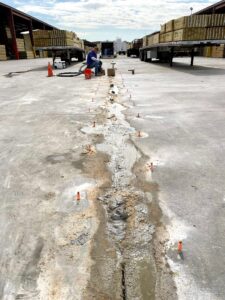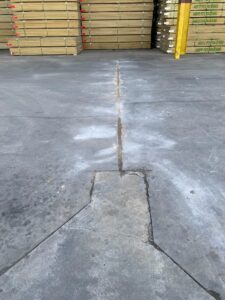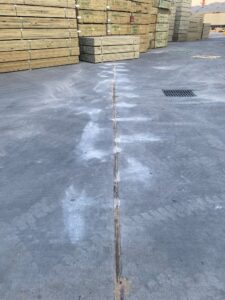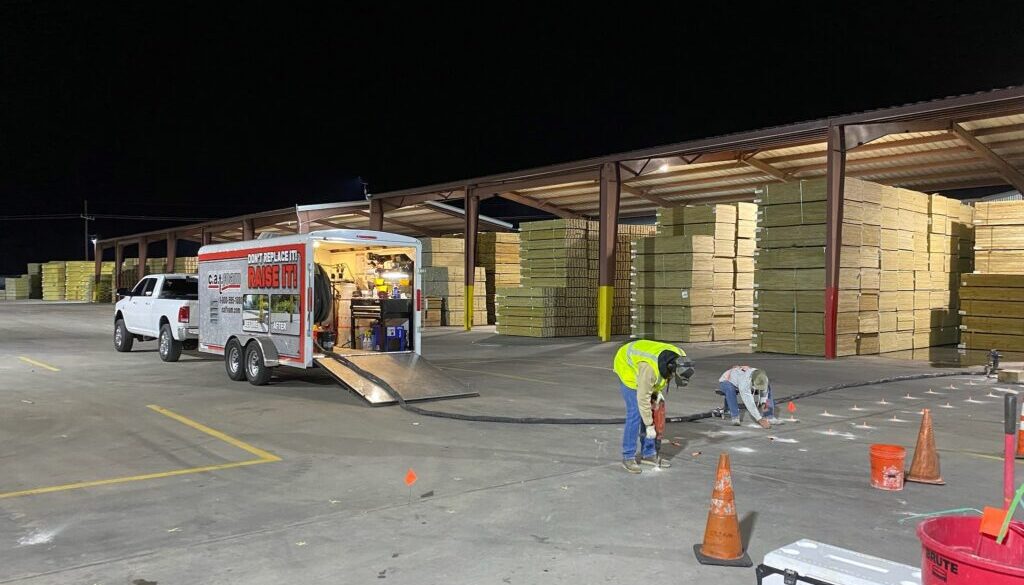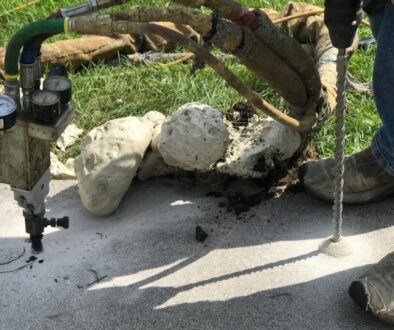Project Type: Soil Stabilization & Releveling
Location: New Waverly, TX
Problem:
UFP Industries is a multibillion-dollar forestry products manufacturer and supplier, with 221 facilities worldwide. Their plant in New Waverly, TX had recently constructed an area experiencing major defects in the concrete slab’s infrastructure. This affected area consisted of over a hundred thousand square feet (ft2) of twelve inch thick reinforced concrete slabs designed to support high flow, heavy class-5 forklift traffic. Due to being built on top of an old lumber ash pit, the soil conditions were poor. Therefore, when the concrete pavement was installed, the subgrade was not stabilized adequately for the intended use. From our inspection, we discovered extensive water infiltration through the expansion joints of the concrete causing the supporting soils to become saturated. The continuous heavy forklift and 18-wheeler traffic caused the groundwater to rise to the surface, exit through the expansion joints, and wash out the subgrade. This left voids underneath the concrete which created slab deflection, differential settlement, and eventual failure.
Summary:
The facility had replaced portions of completely failed concrete but were seeking an alternative solution for the areas that could be rehabilitated. The replacement process was extremely invasive to their operations. This downtime caused major delays and revenue losses for the company. C.A.T.FOAM personnel determined that polymer injection technology would provide an ideal solution for the ongoing soil issues, and that all the proposed work could be completed without interrupting the facility’s normal operations. C.A.T.FOAM consulted with civil engineers to develop the injection schematics, specifications, and timeline of the project. An economic proposal was submitted and approved by UFP Industries to begin production.
Solution:
C.A.T.FOAM designed a work schedule and injection schematic that best fit the facilities needs. By utilizing the Foamjection™ process, we were able to compact, consolidate, and reduce the permeability of the soil mass along the expansion joints. This process consisted of injecting hydro-insensitive polymers of high density into the soils supporting the problematic areas. Dynamic Cone Penetrometer (DCP) testing was performed and elevation monitoring devices were utilized by C.A.T.FOAM’s team, ensuring the injections were in accordance with the project design.
Conclusion:
C.A.T.FOAM successfully completed the remediation work in a short, two week period. The problematic areas were treated, and the concrete slab deflection was reduced within the tolerable standards. As an added bonus, we were able to complete this job while avoiding heavy traffic times and the facility could maintain the steady flow of forklift and 18-wheeler traffic.
